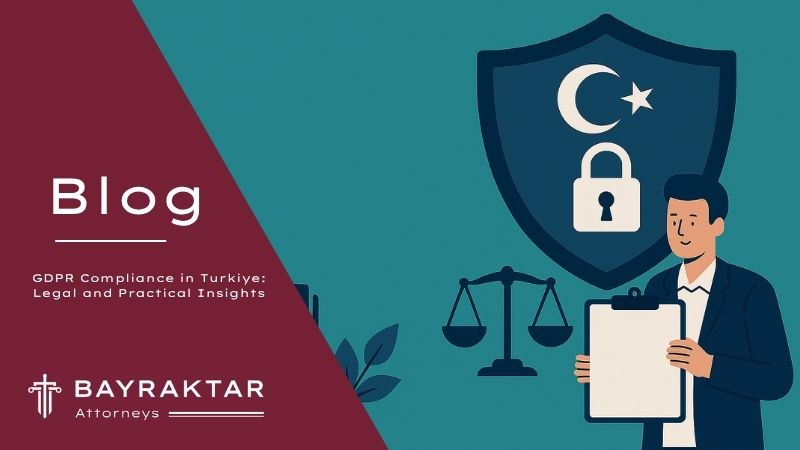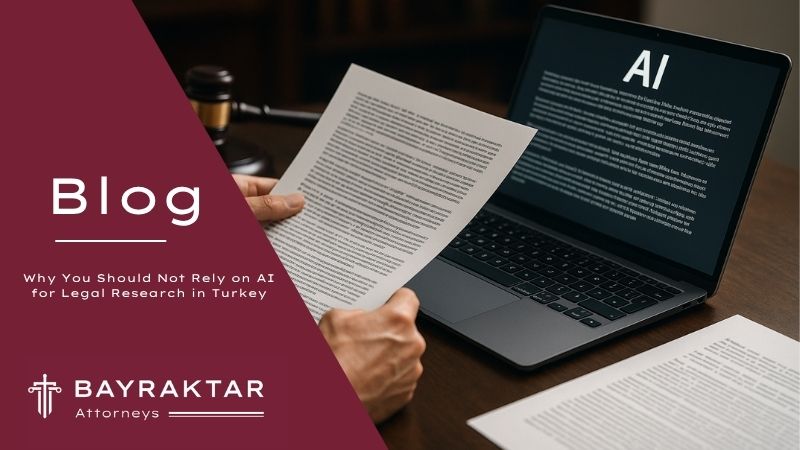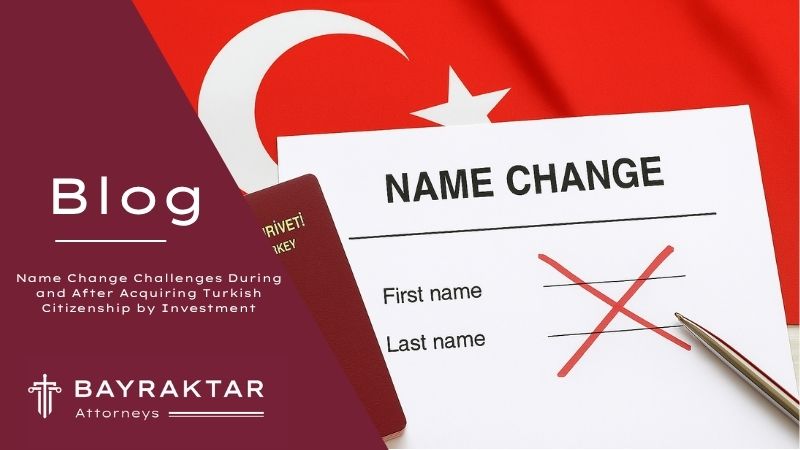
Introduction to Türkiye’s Personal Data Protection Law (KVKK)
The Personal Data Protection Law (KVKK), enacted in 2016, marked a turning point in Türkiye’s efforts to regulate personal data processing. Inspired by global data protection standards, KVKK aims to safeguard individuals’ fundamental rights and freedoms concerning their personal data.
The main principles of the law, such as transparency, using data for a clear purpose, collecting only what is needed, keeping information accurate, limiting how long data is stored, and ensuring safety and privacy, are very similar to the rules in the European Union’s General Data Protection Regulation, known as GDPR.
By aligning itself with GDPR, Türkiye seeks to enhance its domestic data protection practices and ensure compatibility with the EU framework.
Comparing GDPR and KVKK
Responding to the demands of GDPR, Turkish institutions have increasingly implemented compliance procedures. A crucial element of this process includes adopting internal data protection policies outlining how data is collected, processed, stored, and shared in compliance with law.
Appointing Data Protection Officers (DPOs) has become a standard practice, helping organizations manage GDPR compliance and serve as points of contact for data subjects and regulators.
Additionally, conducting Data Protection Impact Assessments (DPIAs) helps assess and mitigate privacy risks linked to data processing activities.
GDPR Compliance Implementation in Turkish Companies
Despite the commitment to aligning with GDPR, Turkish companies often face obstacles. Cultural and institutional resistance to change remains a key challenge. Many companies struggle to transform their organizational mindset and operational systems to align with GDPR standards.
Additionally, a lack of awareness and understanding among employees hampers the effective implementation of compliance processes. Investment in training and awareness programs is crucial.
Budgetary constraints and limited expertise also hinder progress. Overcoming these requires investing in technology, expert consultation, and employee education.
The Role of Internal Policies and Procedures
GDPR compliance has positively impacted data protection practices in Türkiye. One of the key results is the strengthening of data security protocols and mechanisms to prevent unauthorized access, disclosure, alteration, or destruction of personal data.
Enhanced transparency and accountability in processing have also emerged. Organizations now offer more clarity to individuals about how their data is handled, reinforcing control and trust. These changes have fostered a culture of privacy and responsibility within corporate environments.
Appointment of Data Protection Officers (DPOs)
Regulatory authorities in Türkiye play a pivotal role in enforcing GDPR compliance and protecting individual privacy rights. These bodies monitor and audit processing activities to ensure lawful practice.
They are empowered to impose sanctions such as fines, warnings, or corrective measures in case of non-compliance. Moreover, they provide guidance, resources, and training to help organizations meet their legal obligations. Their proactive approach is essential in maintaining a robust privacy framework.
Data Protection Impact Assessments (DPIAs)
Cross-border collaboration and knowledge-sharing between Türkiye and EU member states are essential to harmonize standards and facilitate secure data flows.
Joint development of legal mechanisms and international agreements ensures that personal data can be transferred across borders with appropriate protections. These partnerships enhance mutual trust and help both sides refine their data protection regimes.
Challenges Turkish Companies Face in GDPR Alignment
Despite significant progress, organizations still face challenges. Cultural resistance to change is widespread, and there’s often a lack of internal readiness to shift from traditional practices to GDPR-aligned systems.
Additionally, low awareness levels among employees require systematic educational efforts. Resource limitations, such as budgets and lack of qualified experts, also hinder progress. However, overcoming these with smart investments in technology and consultancy services can improve outcomes.
Cultural Resistance and Lack of Awareness
New technologies like artificial intelligence, IoT (Internet of Things), and blockchain are reshaping the data protection landscape. While these technologies offer efficiency and innovation, they also pose significant privacy risks.
Organizations must ensure that algorithms comply with legal standards and uphold individual rights. Robust measures are needed to secure IoT-connected data and mitigate the risks of unauthorized access or breaches.
Blockchain technology, when applied effectively, can enhance traceability and trust in data transactions.
Future Developments and Legal Implications
The future of data protection law in Türkiye will likely be shaped by legal amendments to KVKK, global cooperation, and stronger data governance frameworks.
The emphasis is growing on ethical data usage and the development of internal structures that support responsible data management.
Türkiye’s partnerships with international entities can help it evolve its data protection system by leveraging best practices and shared expertise.
Practical Recommendations for Turkish Companies
To advance GDPR compliance, organizations should:
Invest in employee training and awareness.
Conduct regular audits and assessments.
Collaborate with data protection professionals.
Develop strong internal policies.
Review and adapt data protection strategies continuously.
These steps not only improve compliance but also reduce risk and build public trust.
Sector-Specific Impacts of GDPR in Türkiye
GDPR’s influence varies across sectors. In healthcare, sensitive personal data requires rigorous safeguards. Hospitals and clinics must use encryption, access control, and strong security protocols. In finance, protecting vast amounts of financial data is key to preventing fraud and breaches.
Institutions need advanced systems to protect client information. In e-commerce, compliance involves obtaining consent, securing online transactions, and providing transparent data handling disclosures.
Regulatory Role in Enforcement
Turkish regulators ensure compliance by conducting audits and initiating investigations when necessary. They also impose sanctions where breaches occur. Additionally, they provide guidance and support to help businesses comply, serving as essential stakeholders in the evolving privacy ecosystem.
Global Best Practices and Comparative Analysis
Comparing GDPR implementation across countries helps identify shared challenges and unique adaptations. While GDPR’s principles are consistent globally, cultural and legal differences influence its application.
Türkiye must navigate complex cross-border regulations and localization requirements to ensure compliance while facilitating data flows.
Final Thoughts on GDPR and KVKK Alignment
KVKK’s evolution and alignment with GDPR have significantly shaped Türkiye’s data protection environment. GDPR has pushed Turkish companies to prioritize data security, transparency, and privacy rights.
Regulators and international collaboration play a central role in supporting this transformation. The focus has shifted to fostering a privacy-conscious culture, updating legal frameworks, and adapting to emerging trends such as AI and blockchain.
Case studies from successful companies further underscore the importance of adopting robust strategies and investing in compliance infrastructure.
Also Read; Penalties for personal data violations in Türkiye
Frequently Asked Questions
What is GDPR in Türkiye, and how is it implemented?
In Türkiye, GDPR is implemented through the Personal Data Protection Law (KVKK), which mirrors GDPR principles. It governs consent, data processing, data breaches, and more.
Are companies in Türkiye required to comply with GDPR?
Yes. Turkish companies must comply with KVKK, which is aligned with GDPR.
What are the key steps to achieving GDPR compliance in Türkiye?
Steps include building data inventories, updating policies, training staff, and setting up breach response mechanisms.
How does GDPR compliance work for small businesses in Türkiye?
Even small businesses must comply. The process depends on the type and scale of data they handle, but must follow KVKK’s core principles.
What are the best practices for GDPR compliance in Türkiye?
Implement a solid data protection policy, train staff regularly, review processing activities, and seek expert advice when needed.






